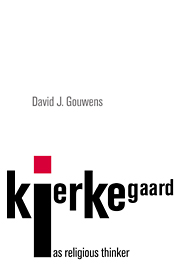Book contents
- Frontmatter
- Contents
- Acknowledgements
- List of abbreviations
- Introduction
- 1 Diseases of reflection
- 2 Anthropological reflection
- 3 Becoming religious: upbuilding before God
- 4 Becoming Christian I: responding to Christ in faith
- 5 Becoming Christian II: suffering and following Christ in hope
- 6 Becoming Christian III: love and imitating Christ in works
- 7 Witness in faith, hope, and love
- Conclusion
- Bibliography
- Index
7 - Witness in faith, hope, and love
Published online by Cambridge University Press: 14 October 2009
- Frontmatter
- Contents
- Acknowledgements
- List of abbreviations
- Introduction
- 1 Diseases of reflection
- 2 Anthropological reflection
- 3 Becoming religious: upbuilding before God
- 4 Becoming Christian I: responding to Christ in faith
- 5 Becoming Christian II: suffering and following Christ in hope
- 6 Becoming Christian III: love and imitating Christ in works
- 7 Witness in faith, hope, and love
- Conclusion
- Bibliography
- Index
Summary
Christianity is praxis, a character-task.
JPiv 3864 (Pap. x a 134, n.d, 1853).Even if faith, hope, and love are not simply internal, but actively manifested in individual action, and even if faith struggles, hope recruits courage in oppression, and love reaches out maieutically to the neighbor, this still does not touch the question of the social and political implications of these Christian virtues. Does Kierkegaard's understanding of these passions of Christian faith give one resources for critique of one's society? Another way to put this is: does the religious imagination simply strive to endure and attend, or does it do more? Can we stand outside of our social worlds and critique the images of the age? And how does one Christianly justify a stance of opposition?
The common interpretation of Kierkegaard is that his religious thought does not address these problems, that despite his critique of institutionalized self-deception (chapter 1) he is radically individualistic, not only acosmic in his alleged ethics of inwardness, but cut off from the political world. Given his frequent references to the contrast between Christianity and politics, his hatred of “the crowd,” his concern with the individual, his respectful regard for the monarchy, Kierkegaard is often labeled a conservative. He is viewed, as Bruce Kirmmse says,
as having had no politics at all, or, what amounts to the same thing, as having embraced a nostalgic, traditionalist, and irrational authoritarianism, a misty reverence for hierarchy and monarchy which was completely irrelevant to the emerging social and economic realities of his times. […]
- Type
- Chapter
- Information
- Kierkegaard as Religious Thinker , pp. 209 - 229Publisher: Cambridge University PressPrint publication year: 1996



